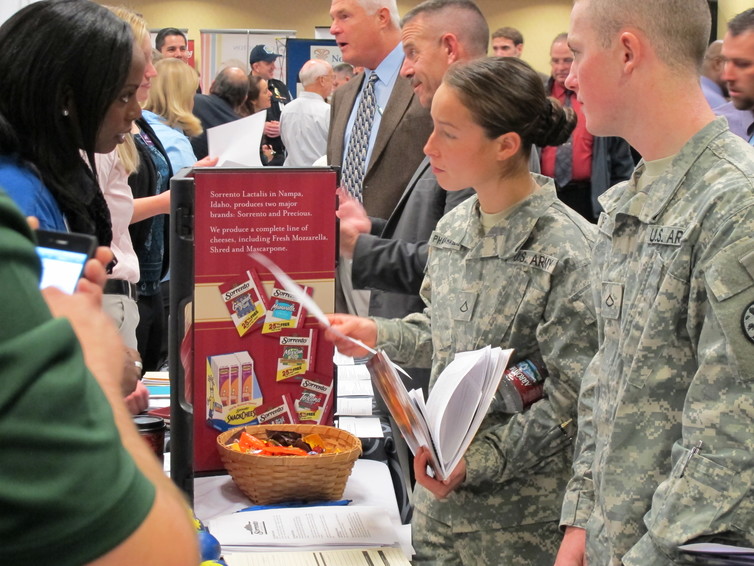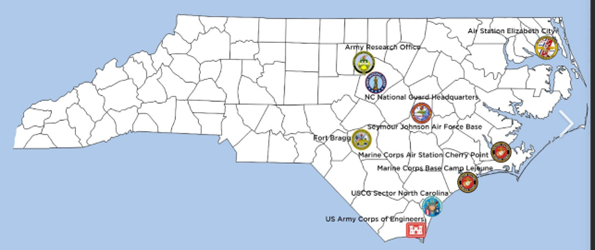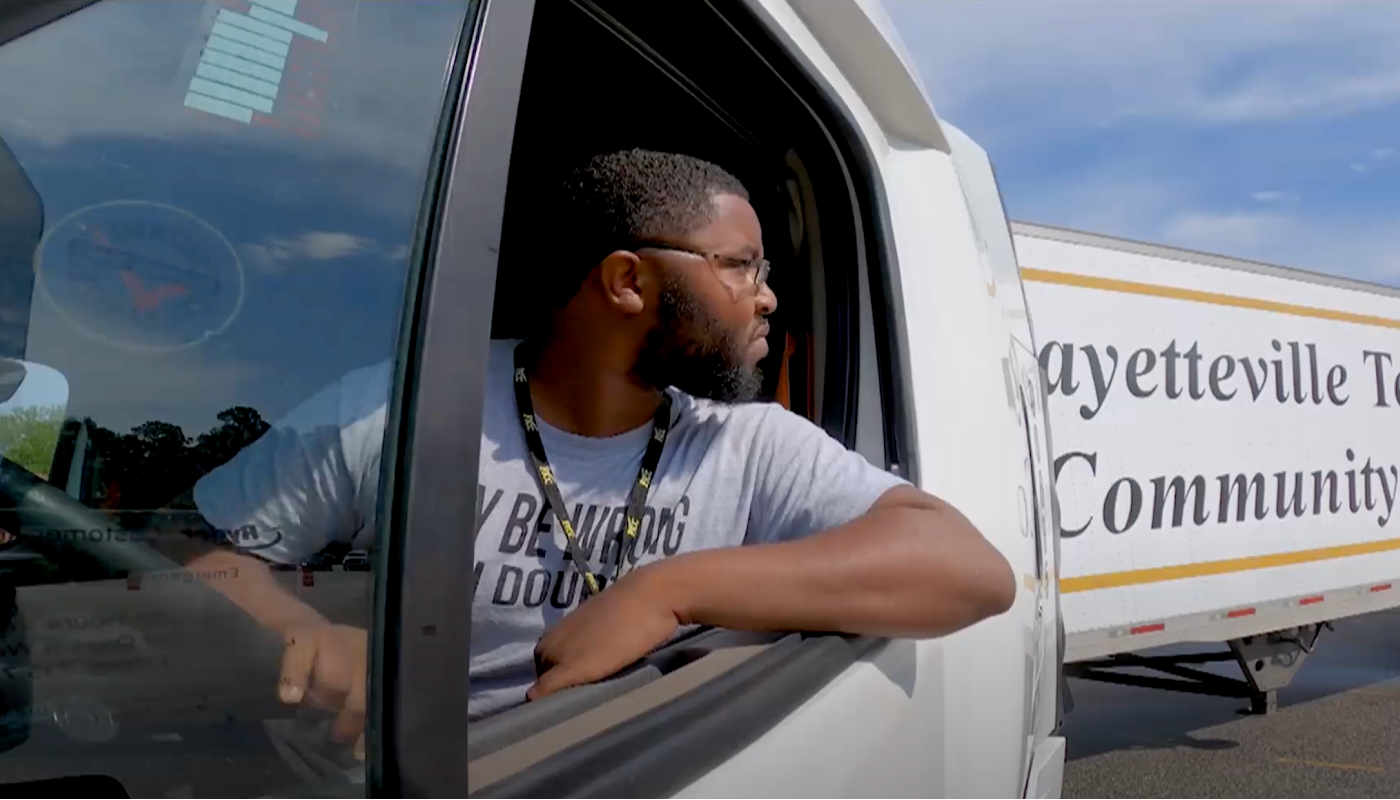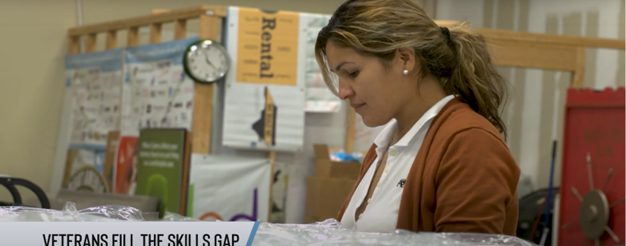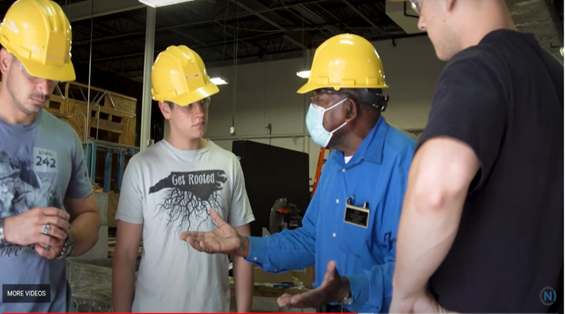Veterans Closing the Skills Gap
As the state continues to emerge from the COVID-19 pandemic, communities face labor shortages as skill gaps and hiring challenges hinder the economic recovery. Fortunately, veterans returning to civilian life are searching for careers where they can use the skills they gained while in service, thus providing a potential solution to the shortage.

The Problem
North Carolina has a higher percentage of veterans who are residents than the national average, 8.4 percent compared to 6.9 percent for the rest of the country. However, in North Carolina, there is a lower percentage of veterans in the workforce than the state average, at 72.4 percent for veterans and 75.7 percent for non-veterans. As the state continues to emerge from the COVID-19 pandemic, communities face labor shortages as skill gaps and hiring challenges hinder economic recovery. Fortunately, veterans returning to civilian life are searching for careers where they can use the skills they gained while in service, thus providing a potential solution to the shortage.
Veterans often face challenges as they look for careers after their military service, though. They may have limited experience searching for and applying to civilian jobs if they entered the military in their late teens or early twenties and remained in active duty for many years. By the time they exit, the job market and methods for applying to positions may have changed from the time they entered the military. Many jobs require previous experience in the field, which veterans may not possess. Employers may lack an understanding about military pay grades and not meet veterans’ expectations for salary. Employers also may not understand the terms a veteran applicant may use on their resume or in an interview, which causes a lack of understanding about how the veteran’s skillset is applicable in the civilian workplace.
The Solution
North Carolina is home to six major military installations, which include Fort Bragg and Camp Lejeune, as well as two Marine Corps air stations and Seymour Johnson Air Force Base. Every year, between 16,000 and 18,000 service members exit the military in the state, and many of them seek full-time employment. Through their military experience and training, veterans possess a multitude of skills and character traits that can make an impact for in-demand industries. The discipline, dedication, and drive they possess can be vital in fostering an efficient and effective workplace environment. Moreover, veterans often possess leadership skills and technical work experience that can benefit companies and agencies. Many veterans, such as Raven Coleman, owner of Central Carolina Cleaning Company Inc., find that their experience dealing with crises makes it easier to help people in need.
Across the state, there are a multitude of opportunities for veterans to find a fulfilling career, as well as public-private partnerships to help them in their career journey. Some of those partnerships include North Carolina for Military Employment (NC4ME), which aims to make North Carolina the best state for military employment, and the USO Pathfinder Transition Program, which helps veterans and their families create a roadmap for life after service with free one-on-one support. The North Carolina Military Business Center works to help veterans become entrepreneurs and find their passions by providing employment programs to support the integration of highly skilled service members into the workforce while supporting economic developers in recruiting defense-related businesses to the state.
A public sector agency providing opportunities for veterans is the Mecklenburg County Code Enforcement Office, which needs to hire more building inspectors to ensure the safety and durability of homes and businesses. With labor shortages affecting the construction industry and the growing number of veterans moving to Mecklenburg County, the office implemented the Building with our Veterans program, which provides classes and first-hand experience to veterans seeking to break into the industry. They can eventually transition into full-time county inspectors, thus giving them the ability to grow their skills and ascend the career ladder, where they can serve as mentors to fellow veterans looking for employment.
Another opportunity is the Transition Tech program provided by Fayetteville Technical Community College, in which people can earn national certification in construction, truck driving, solar technology and emergency medical services through a fifteen-week program. Started in 2014, the program has helped dozens of veterans achieve certification, while partnering with local businesses to help graduates fill local skill gaps. Wayne Community College hosts an education center on Seymour Johnson Air Force base where veterans and active-duty personnel can take college-level courses and short-term courses. In addition, the center also provides training for resume-writing and interviews, all of which is available virtually, thus increasing access to these resources.
The Players
Efforts to assist veterans in their career search have been aided by various collaborations. The Mecklenburg County Land Use and Environmental Services Agency (LUESA) partnered with Central Piedmont Community College (CPCC) to provide educational and on-site opportunities for veterans, such as the Building with Our Veterans program. In order to identify a sizeable pool of veterans to join this collaboration, the Mecklenburg County Human Resources Department and the Mecklenburg County Veteran Services Department worked to collect a list of skilled veterans who would be open to working for a government agency. Director Gujjarlapurdi identified three major needs served with this program: the need for a talented pool of job applicants, the need to find jobs for the increased number of veterans moving to the Charlotte area, and the lack of job opportunities available to veterans.
Established in 2015, the NC4ME program uses existing tools in workforce development to conduct an “employer-centric strategy” that advocates for North Carolina businesses to seek out veterans for open positions while showing human resources groups how to hire former service members. The organization also connects veterans to jobs, education, and training within the state through a variety of summits and hiring events designed to increase contact and awareness between veterans and employers. It also provides free assistance from a career advisor at career centers across the state. Over 7,800 service members and their spouses have been helped by this initiative, and over 9,600 connections have been made through NC4ME events, thus proving the importance of this public-private partnership.
The Promise
There is high potential for veterans to contribute to multiple industries given the many different occupational codes within the military, with jobs including doctors, lawyers, mechanics, and human resource specialists. Moreover, veterans embedded within different industries can dedicate themselves to recruiting and attracting more veterans to their sector of the workforce and serve as mentors to those who are starting out with an employer. Human Resources departments can be trained to recognize the military language that may be seen on resumes and in interviews in order to comprehend the full scope of what a veteran can contribute to a position. It will also be helpful for human resource departments to be aware of existing positions within the military so they can be prepared for the knowledge and skillsets that veterans bring. With 8 in 10 employers indicating that the talent pool of veterans is tied with an increase in race, gender, and age diversity, it is important that veterans are taken into consideration during the hiring process.
Organizations also have an opportunity to work together to help increase the number of veterans working in jobs for which they are passionate. Partnerships can be made with organizations such as the USO, where the hosting of networking events, assistance with resume-writing, and mentorship will make veterans more marketable and increase access for companies searching for employees. Mentors can also assist veterans through multi-step processes that are common for state and federal jobs and help them convert military language into standard resume language. It is also important for local universities and community colleges to reach out to nearby military bases to make them aware of opportunities. Most community colleges also have a local business center for potential entrepreneurs, such as the Boots to Business program.

